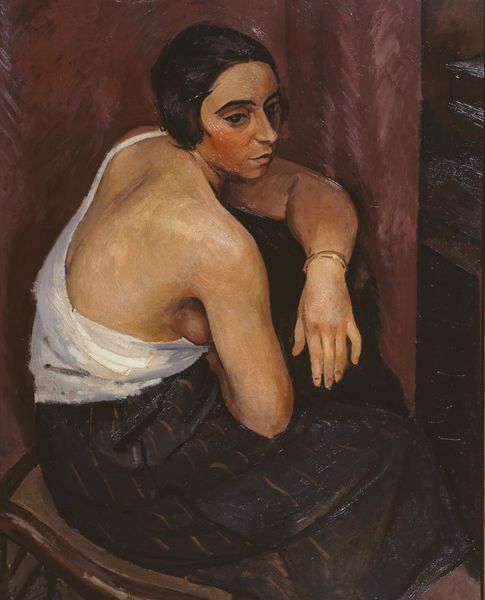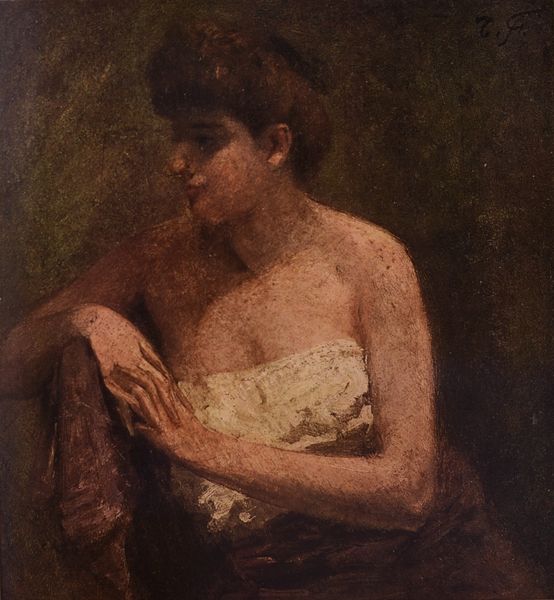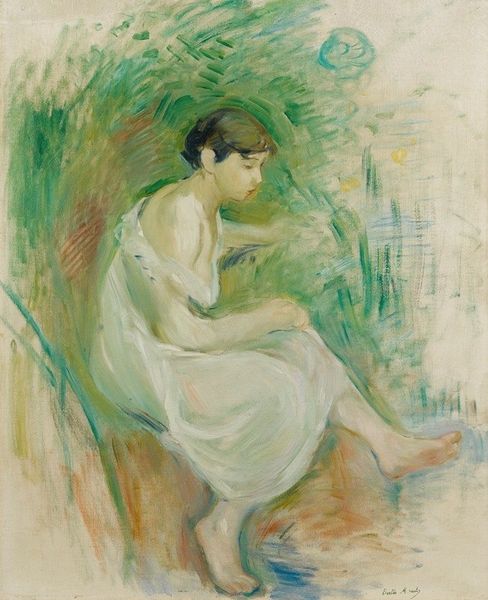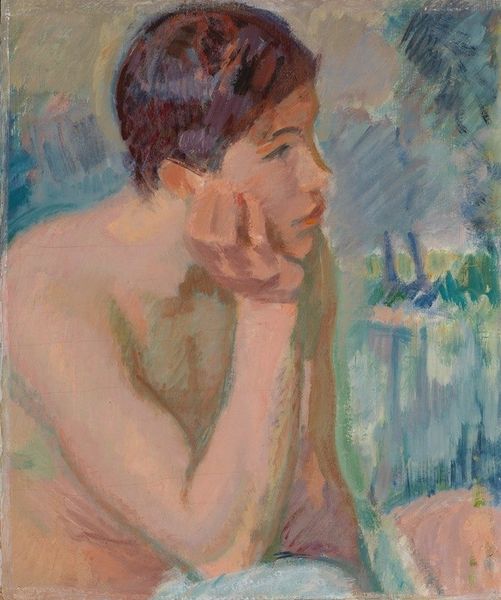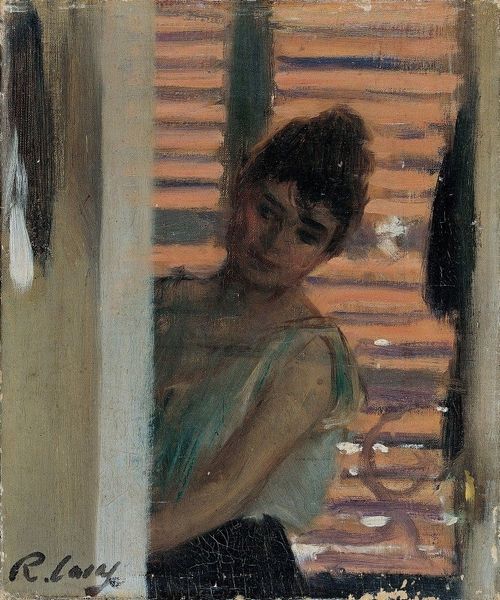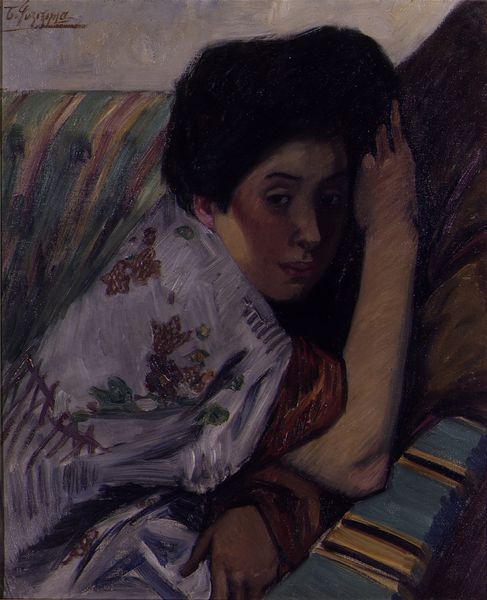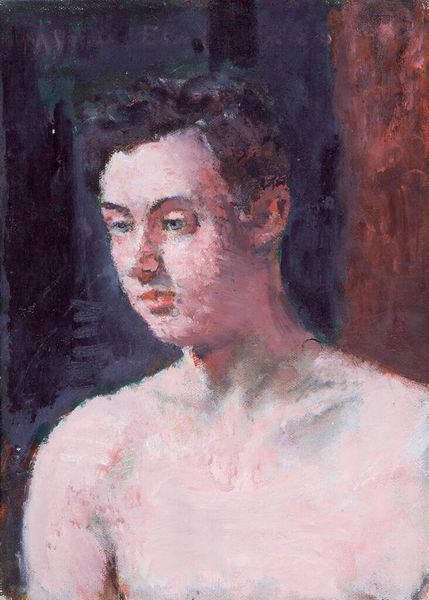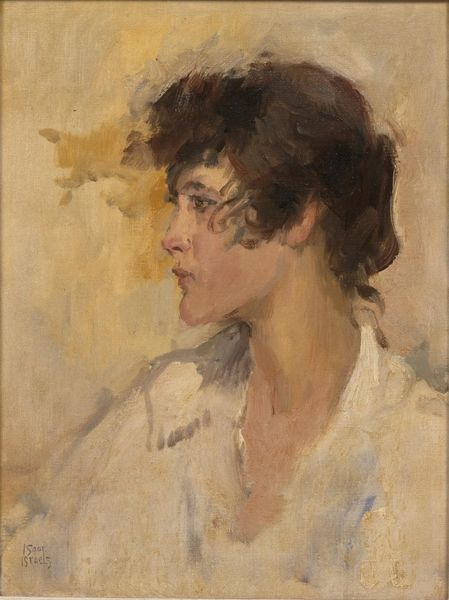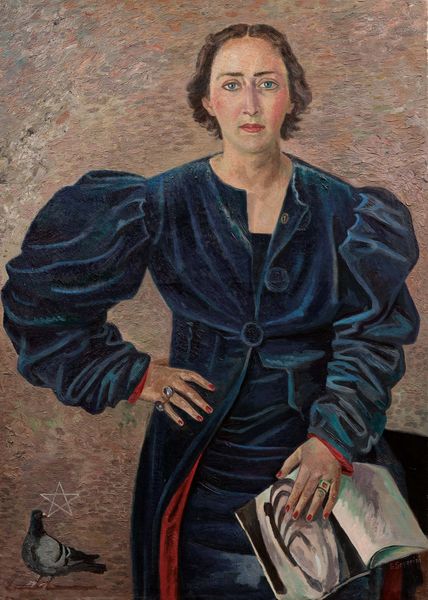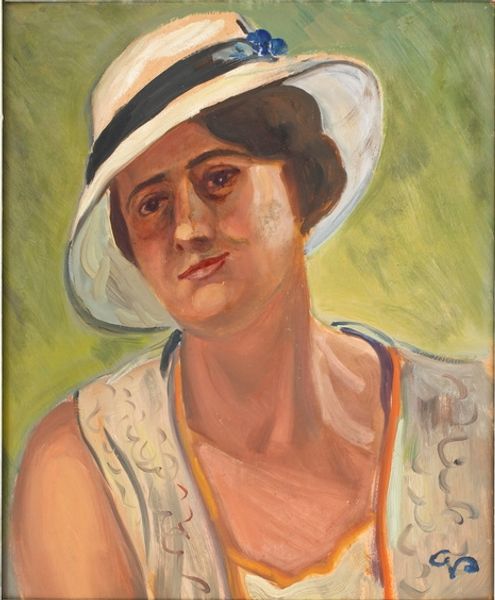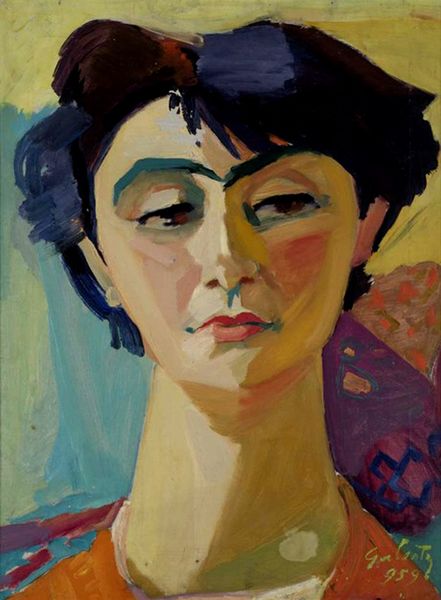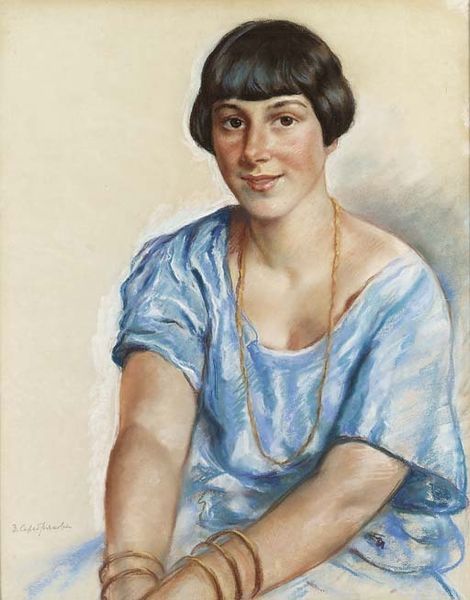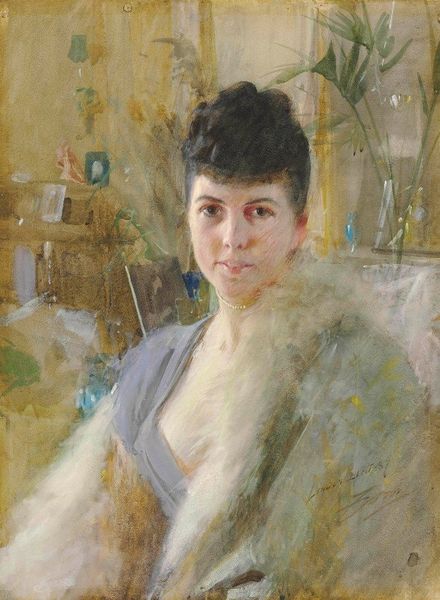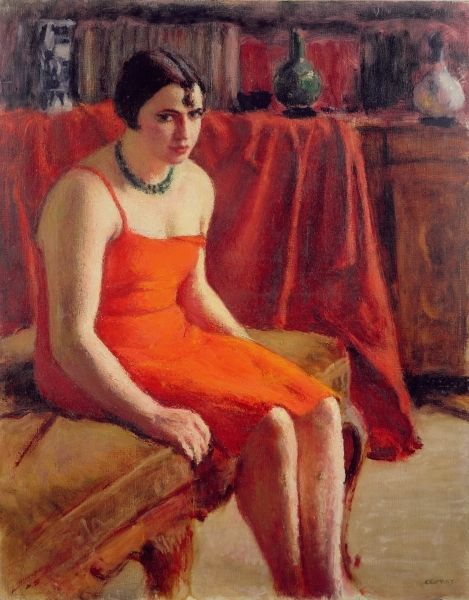
Copyright: Public domain
Curator: This is Maximilien Luce’s 1905 oil painting, “Philiberte Givort -”. Editor: It has a sort of subdued, melancholic beauty, wouldn’t you say? A muted palette and this woman’s contemplative pose…it’s as if we've stumbled upon her deepest thoughts. Curator: Indeed. Luce, though associated with Neo-Impressionism, often imbued his works with social commentary and psychological depth, and considering that the painting dates to 1905, the subject’s pensive mood might subtly hint at anxieties around emerging political currents of the era, and especially female representation within that sphere. Editor: Interesting. I mostly get a feeling of simple, quiet observation. Look at how the light catches the soft curve of her arm. And those almost indigo undertones in her hair… it is striking! Curator: It’s certainly a character study, though arguably filtered through a lens of the artist's socio-political engagement. Consider also the Impressionistic influence—the fragmented brushstrokes that coalesce to create a sense of fleeting moments. Editor: True, there’s a vibrancy in the details, but I keep coming back to that stillness. She’s present, yet somehow withdrawn, existing both in and outside of her time. I can relate! Curator: I think situating Givort's expression within broader narratives of early 20th-century women is an exercise of seeing where she can speak for this particular transitional moment. What feelings, opportunities, challenges was this figure confronted with? What do we expect of her, what might she demand? Editor: That’s a grand interpretation, I love that. Me? I feel the pull of wanting to invent a little story for her—something whimsical, filled with hidden gardens, and stolen glances. A personal story, you know? Maybe because in the end art should always inspire our feelings as much as our thoughts. Curator: I wholeheartedly concur; art at its most compelling is when it encourages the re-framing of perceptions. Editor: It reminds us of our capacity for endless reinvention and recreation. Curator: Precisely, for the benefit of social engagement as much as personal edification.
Comments
No comments
Be the first to comment and join the conversation on the ultimate creative platform.
